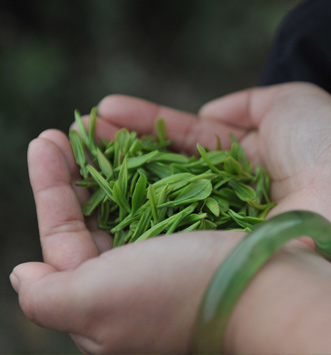
Is organic tea, praised for its health benefits, not as clean as we thought? This is what a study by '60 Million Consumers' suggests, having found residues of chemical products, including pesticides, in tea bags. The presence, even in trace amounts, of chemicals on tea leaves could be harmful to health. Here's what you need to know about pesticides in tea.
Tea, a popular beverage
Organic teas, or not, are the second most consumed beverage in France and worldwide, just behind water. About 6 million tons of tea leaves, whether black teas or green teas, are consumed each year worldwide. While consumption is global, production is concentrated in just a few countries, mainly China and India.
Pesticides in teas, but not just that...
Often cited as examples for their health benefits, are green or black teas really as healthy as claimed? The magazine '60 Million Consumers' looked into this question with more than worrying observations. Indeed, according to their findings, many tea bags available in France contain toxic substances: pesticides, heavy metals, and chemicals.
Pesticides in teas
To understand the presence of pesticides in tea, it's important to know that tea leaves are not washed during the preparation process. Thus, like many foods, tea is now affected by pollutant contamination. According to studies, black teas and mint green teas contain sometimes significant or multiple pesticide residues. The pesticides most commonly implicated in tea contamination are folpet and anthraquinone.
Heavy metals in teas
Unfortunately, there is a cocktail effect in plant contamination. This refers to the combination of different chemical pollutants present, sometimes in trace amounts. Thus, the analysis by '60 Million Consumers' magazine also points out the contamination of many teas with heavy metals. These toxins, mainly found in green teas, are mercury and arsenic.
Other chemical pollutants in teas
The tests on which the magazine bases its assessment of tea health quality reveal that some teas contain pollutants and toxins. While the detection of pyrrolizidine alkaloids doesn't particularly surprise specialists, the presence of polymers detached from tea bags and mineral oils from labels raises more questions.
Health risks of pesticides
These toxic substances, whether pesticides or other contaminants, are only present in small quantities. However, tea is a daily beverage, and when exposure is chronic, consumers have the right to question the overall impact on their bodies. Indeed, most substances are now classified as endocrine disruptors or carcinogens by the WHO. Another reason to turn to a cleaner product where health quality is assured.
Are organic teas really pesticide-free?
The pesticide contamination is not only linked to the cultivation itself. With the massive use of these types of products over decades, unfortunately, water and soil are partially contaminated. While it's impossible to guarantee organic tea completely free of pesticides, studies have shown they contain significantly less. Despite some chemical residues, organic tea, whether green or black, remains a flagship health food.